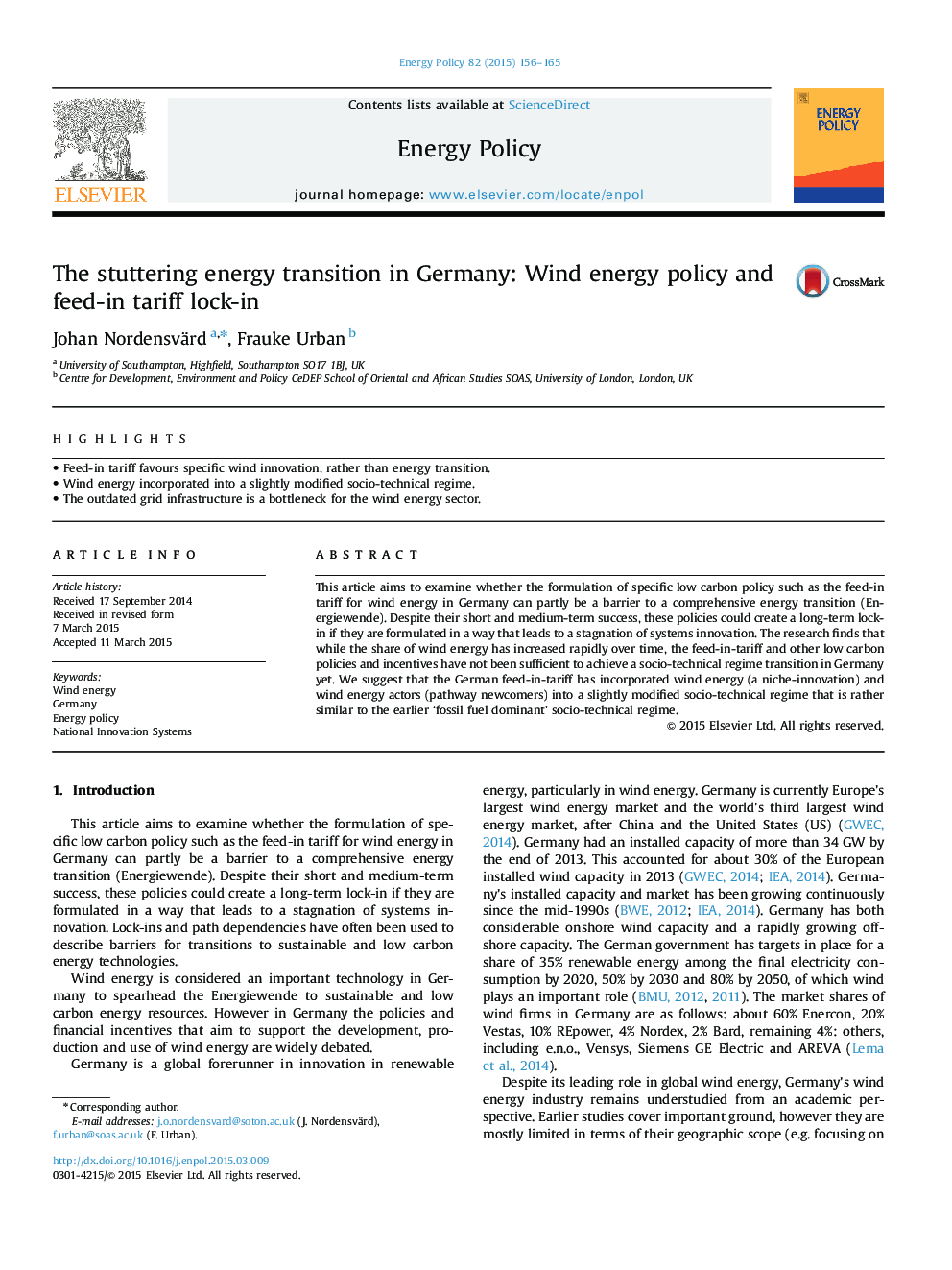| Article ID | Journal | Published Year | Pages | File Type |
|---|---|---|---|---|
| 7400971 | Energy Policy | 2015 | 10 Pages |
Abstract
This article aims to examine whether the formulation of specific low carbon policy such as the feed-in tariff for wind energy in Germany can partly be a barrier to a comprehensive energy transition (Energiewende). Despite their short and medium-term success, these policies could create a long-term lock-in if they are formulated in a way that leads to a stagnation of systems innovation. The research finds that while the share of wind energy has increased rapidly over time, the feed-in-tariff and other low carbon policies and incentives have not been sufficient to achieve a socio-technical regime transition in Germany yet. We suggest that the German feed-in-tariff has incorporated wind energy (a niche-innovation) and wind energy actors (pathway newcomers) into a slightly modified socio-technical regime that is rather similar to the earlier 'fossil fuel dominant' socio-technical regime.
Related Topics
Physical Sciences and Engineering
Energy
Energy Engineering and Power Technology
Authors
Johan Nordensvärd, Frauke Urban,
